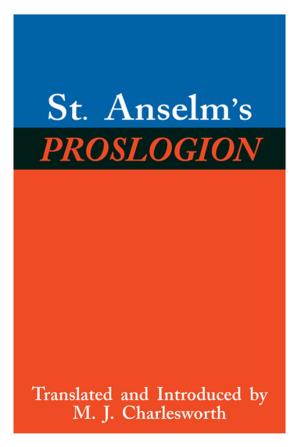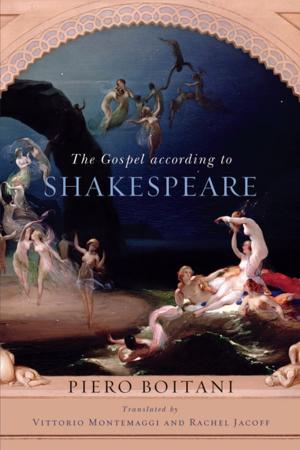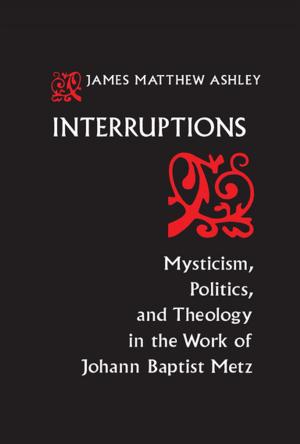A Philosophy of the Unsayable
Nonfiction, Religion & Spirituality, Christianity, Church, Orthodox Churches, Philosophy, Epistemology, Religious| Author: | William P. Franke | ISBN: | 9780268079772 |
| Publisher: | University of Notre Dame Press | Publication: | March 30, 2014 |
| Imprint: | University of Notre Dame Press | Language: | English |
| Author: | William P. Franke |
| ISBN: | 9780268079772 |
| Publisher: | University of Notre Dame Press |
| Publication: | March 30, 2014 |
| Imprint: | University of Notre Dame Press |
| Language: | English |
In A Philosophy of the Unsayable, William Franke argues that the encounter with what exceeds speech has become the crucial philosophical issue of our time. He proposes an original philosophy pivoting on analysis of the limits of language. The book also offers readings of literary texts as poetically performing the philosophical principles it expounds. Franke engages with philosophical theologies and philosophies of religion in the debate over negative theology and shows how apophaticism infiltrates the thinking even of those who attempt to deny or delimit it. In six cohesive essays, Franke explores fundamental aspects of unsayability. In the first and third essays, his philosophical argument is carried through with acute attention to modes of unsayability that are revealed best by literary works, particularly by negativities of poetic language in the oeuvres of Paul Celan and Edmond Jabès. Franke engages in critical discussion of apophatic currents of philosophy both ancient and modern, focusing on Hegel and French post-Hegelianism in his second essay and on Neoplatonism in his fourth essay. He treats Neoplatonic apophatics especially as found in Damascius and as illuminated by postmodern thought, particularly Jean-Luc Nancy’s deconstruction of Christianity. In the last two essays, Franke treats the tension between two contemporary approaches to philosophy of religion—Radical Orthodoxy and radically secular or Death-of-God theologies. A Philosophy of the Unsayable will interest scholars and students of philosophy, literature, religion, and the humanities. This book develops Franke's explicit theory of unsayability, which is informed by his long-standing engagement with major representatives of apophatic thought in the Western tradition.
In A Philosophy of the Unsayable, William Franke argues that the encounter with what exceeds speech has become the crucial philosophical issue of our time. He proposes an original philosophy pivoting on analysis of the limits of language. The book also offers readings of literary texts as poetically performing the philosophical principles it expounds. Franke engages with philosophical theologies and philosophies of religion in the debate over negative theology and shows how apophaticism infiltrates the thinking even of those who attempt to deny or delimit it. In six cohesive essays, Franke explores fundamental aspects of unsayability. In the first and third essays, his philosophical argument is carried through with acute attention to modes of unsayability that are revealed best by literary works, particularly by negativities of poetic language in the oeuvres of Paul Celan and Edmond Jabès. Franke engages in critical discussion of apophatic currents of philosophy both ancient and modern, focusing on Hegel and French post-Hegelianism in his second essay and on Neoplatonism in his fourth essay. He treats Neoplatonic apophatics especially as found in Damascius and as illuminated by postmodern thought, particularly Jean-Luc Nancy’s deconstruction of Christianity. In the last two essays, Franke treats the tension between two contemporary approaches to philosophy of religion—Radical Orthodoxy and radically secular or Death-of-God theologies. A Philosophy of the Unsayable will interest scholars and students of philosophy, literature, religion, and the humanities. This book develops Franke's explicit theory of unsayability, which is informed by his long-standing engagement with major representatives of apophatic thought in the Western tradition.















